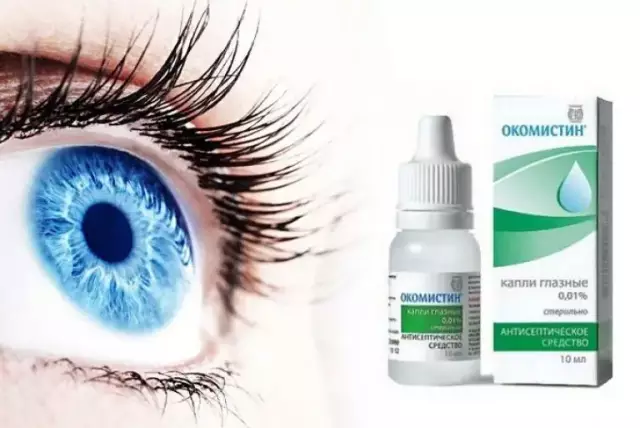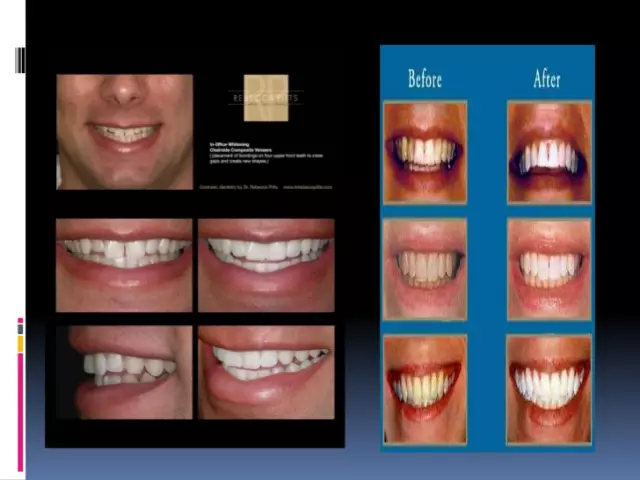- Author Rachel Wainwright wainwright@abchealthonline.com.
- Public 2023-12-15 07:39.
- Last modified 2025-11-02 20:14.
Erythromycin
Instructions for use:
- 1. Composition and form of release
- 2. Pharmacological action
- 3. Indications for use
- 4. Instructions for use
- 5. Contraindications to use
- 6. Side effects
- 7. Overdose
- 8. Drug interactions
- 9. Terms and conditions of storage
Prices in online pharmacies:
from 24 rubles.
Buy

Erythromycin is a macrolide antibiotic synthesized by strains of Streptomyces erythreus bacteria.
Ilozon, Ermidsed, Grunamycin syrup, Meromycin, Erifluid, Erythromen, Erythran are substitutes (analogues) of Erythromycin.
Composition and form of release
According to the instructions, Erythromycin is available in tablet form (100, 250 and 500 mg); in the form of an eye ointment; in the form of an ointment for local and external use; in the form of a lyophilisate for the preparation of a solution for intravenous injection. The substance erythromycin is the main active ingredient of the drug.
Pharmacological action of Erythromycin
Erythromycin and Erythromycin analogs disrupt the formation of bonds between amino acid molecules, blocking the synthesis of bacterial proteins (do not affect the formation of nucleic acids). The use of Erythromycin in high doses contributes to the manifestation of its bactericidal effect.
According to the instructions, treatment with Erythromycin or Erythromycin analogs is prescribed for diseases caused by gram-negative (Haemophilus influenzae, Neisseria gonorrhoeae, Brucella spp., Bordetella pertussis, Legionella spp.) Or gram-positive bacteria (Streptococcus spp., Staphylococcus spp., Staphylococcus spp. Synthesis. hemolytic streptococcus from the Viridans group, Corynebacterium minutissimum, Corynebacterium diphtheriae, Bacillus anthracis), as well as Listeria monocytogenes, Treponema spp., Chlamydia spp., Entamoeba histolytica, Rickettsia spp.
Erythromycin-resistant gram-negative bacilli Pseudomonas aeruginosa, Escherichia coli, as well as Salmonella spp., Shigella spp..
Microorganisms are considered sensitive to Erythromycin, the growth of which slows down at a drug concentration of less than 0.005 g / l, moderately sensitive - from 0.001 to 0.006 g / l, moderately stable and resistant - from 0.006 to 0.008 g / l.
Erythromycin is distributed unevenly in the body. Most of it accumulates in the kidneys, spleen, liver. The drug penetrates well into synovial and ascites fluids, pleural cavity, lung tissue, sperm. The concentration in the cerebrospinal fluid is 10% of the plasma antibiotic content.
The main part of Erythromycin (about 90%) is metabolized in the liver. With bile, 20-30% of the antibiotic is excreted, by the kidneys - 2-5% of Erythromycin unchanged (half-life is 1.5-2 hours).
Indications for the use of Erythromycin
According to the instructions, treatment with Erythromycin is indicated for various infectious and inflammatory processes, including respiratory tract infections, diphtheria, prostatitis, scarlet fever, amoebic dysentery, listeriosis, syphilis, cholecystitis, gonorrhea. Erythromycin is used in the treatment of infections of soft tissues and skin - trophic ulcers, second and third degree burns, furunculosis, infected wounds, pustular skin diseases. In addition, the antibiotic is used for various infections of the mucous membrane of the eyes (including conjunctivitis in newborns), for urinary infections in pregnant women caused by Chlamydia trachomatis.
The responses to Erythromycin indicate that this antibiotic is often used to prevent infectious complications in various diagnostic and therapeutic procedures.
Instructions for use

According to the instructions, Erythromycin tablets should be taken orally (do not chew). The daily dose of the drug for adults and adolescents (over 14 years old) is 1-2 g, a single dose is 0.25-0.50 g. If necessary, the daily dose is increased to 4 g. The interval between doses is six hours.
Children from four months to 18 years old, depending on body weight, age and severity of the disease, are prescribed 0.03-0.05 g / kg per day in two to four doses, children of the first three months of life - 0.2-0, 4 g / kg Erythromycin per day. If necessary, the daily dose is doubled.
When treating diphtheria with Erythromycin, 0.25 g of the drug is taken twice a day.
The therapeutic dose for primary syphilis is 30-40 g of the antibiotic for the entire course of treatment. The course of treatment is one to two weeks.
With amoebic dysentery, adults are prescribed 0.25 g of the drug four times a day, children - 0.03-0.05 g / kg of Erythromycin per day. The duration of the course is 10-15 days.
With legionellosis, take 0.5-1 medication four times a day for two weeks.
With gonorrhea - 0.5 g of the drug every six hours for three days, then 0.25 g every six hours for a week.
For the prevention of infectious complications, 1 g of the antibiotic is prescribed 19 hours, 18 hours and 9 hours before the start of the operation.
For whooping cough, take 0.04-0.05 g / kg of antibiotic per day for one to two weeks. With pneumonia in children - 0.05 g / kg antibiotic per day (in four divided doses). The duration of the course is at least three weeks.
With genitourinary infections during pregnancy - 0.5 g of medication four times a day for a week.
Erythromycin in the form of an ointment is applied to the affected area, and in case of eye diseases, it is placed behind the lower eyelid. The frequency, dose and duration of the use of Erythromycin in the form of an ointment is set individually.
Contraindications to the use of Erythromycin
- hypersensitivity to any component of the drug;
- lactation period;
- hearing loss;
- concomitant use of astemizole or terfenadine;
- liver failure.
Erythromycin is able to penetrate the placental barrier, entering the fetal blood plasma, where its concentration reaches 5-20% of the concentration in the mother's blood.
Side effect
Side effects during treatment with Erythromycin occur infrequently. The responses to Erythromycin say that with prolonged use of the antibiotic, vomiting, diarrhea, nausea, and jaundice occur.
Judging by the reviews, Erythromycin in some cases can cause allergic reactions.
Long-term use of Erythromycin contributes to the development of resistance to it of pathogenic microorganisms.
Overdose
Symptoms of an overdose with Erythromycin: acute hepatic failure, hearing loss.
Therapy: intake of activated carbon, careful monitoring of the state of the respiratory system. Gastric lavage is considered effective when a dose is taken that is five times the therapeutic dose.
Erythromycin drug interactions
The antibiotic reduces the bactericidal effect of beta-lactam antimicrobial drugs - cephalosporins, penicillins, carbopenems.
Erythromycin enhances the nephrotoxicity of cyclosporine and the pharmacological action of benzodiazepines.
A one-time intake of erythromycin and terfenadine or astemizole contributes to the possible development of arrhythmias.
A one-time intake of the drug and dihydroergotamine or non-hydrogenated ergot alkaloids leads to spasmodic vasoconstriction.
Storage term and conditions
According to the instructions, Erythromycin should be stored in a dry, dark place at a temperature not exceeding 25 ° C.
Shelf life is two years.
Erythromycin: prices in online pharmacies
|
Drug name Price Pharmacy |
|
Erythromycin (lyophilisate) 100 mg lyophilisate for preparation of solution for intravenous administration 1 pc. RUB 24 Buy |
|
Erythromycin 100 mg lyophilisate for preparation of solution for intravenous administration 50 pcs. RUB 26 Buy |
|
Erythromycin 250 mg enteric coated tablets 10 pcs. 41 rbl. Buy |
|
Erythromycin tablets p.o. intestinal. 0.25g 10 pcs. RUB 48 Buy |
|
Erythromycin (eye ointment) 10,000 U / g eye ointment 10 g 1 pc. RUB 69 Buy |
|
Erythromycin (eye ointment) 10,000 U / g eye ointment 10 g 1 pc. RUB 69 Buy |
|
Erythromycin ointment 10000 units / g 15g RUB 70 Buy |
|
Erythromycin (ointment) 10,000 U / g Ointment for external use 15 g 1 pc. RUB 70 Buy |
|
Erythromycin (ointment) 10,000 U / g Ointment for external use 15 g 1 pc. RUB 75 Buy |
|
Reviews Erythromycin (ointment) RUB 75 Buy |
|
Erythromycin ointment for external use. approx. 10000 units / g 15g 79 RUB Buy |
|
Erythromycin eye ointment 10000 units / g 10g RUB 87 Buy |
|
Erythromycin 250 mg enteric-coated tablets 20 pcs. 91 rbl. Buy |
|
Erythromycin 250 mg enteric-coated tablets 20 pcs. RUB 99 Buy |
| See all offers from pharmacies |
Information about the drug is generalized, provided for informational purposes only and does not replace the official instructions. Self-medication is hazardous to health!






